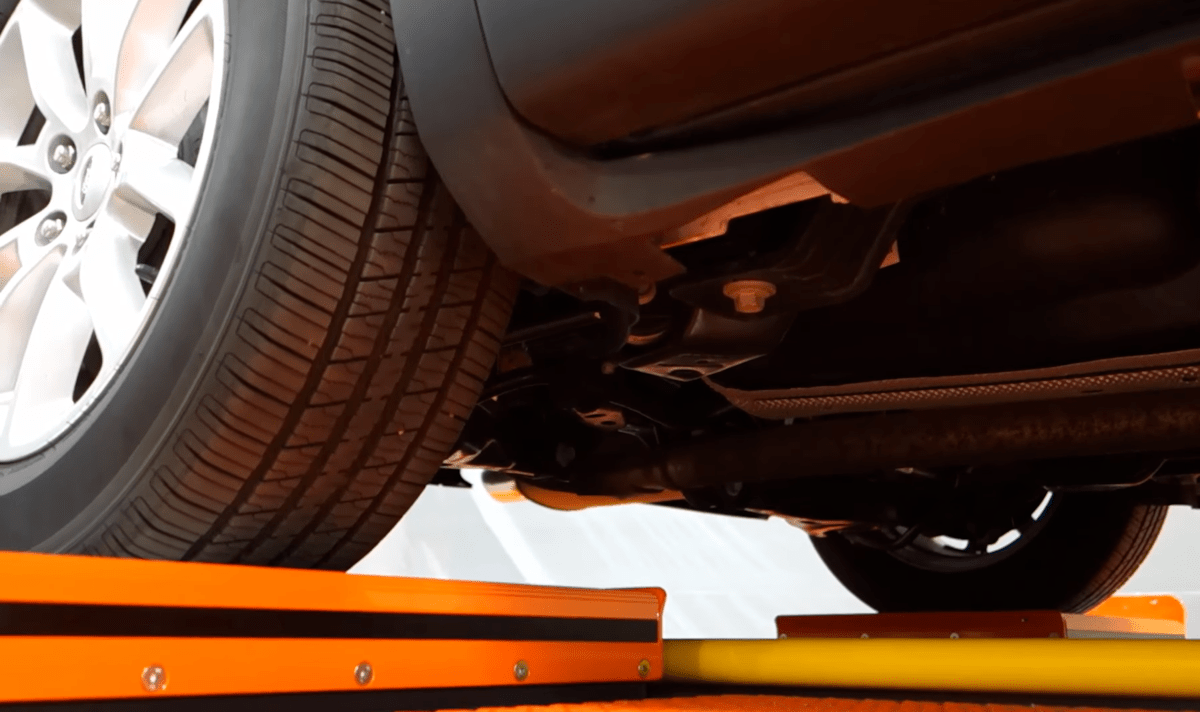EN 13749 Fatigue Testing of Rubber-Metal Suspension Elements
The European Standard EN 13749 outlines a method for conducting fatigue testing on rubber-metal suspension elements used in railway and transportation systems. This standard is crucial for ensuring the reliability, durability, and safety of these components, which are subject to severe mechanical stresses during operation.
During fatigue testing, specimens undergo repeated loading cycles until failure or a predetermined number of cycles is reached. The primary goal is to assess how well the material and design withstand cyclic stress without compromising functionality. This type of testing is particularly important for rubber-metal elements due to their role in absorbing vibrations and shocks, which can significantly impact vehicle performance and passenger comfort.
Before testing begins, it’s essential that specimens are prepared according to the standard's specifications. This includes ensuring proper conditioning, cleaning, and if necessary, preparing a representative sample from a larger batch of materials or components. The testing process itself involves applying controlled loads at specific frequencies and amplitudes to simulate real-world conditions experienced by the component during its operational life.
The fatigue test setup typically consists of specialized equipment designed to apply cyclic loading while monitoring displacement, stress, strain, and other critical parameters throughout the experiment. High-precision instruments such as load cells, strain gauges, displacement transducers, and data acquisition systems play a vital role in collecting accurate measurements during testing.
After completing the required number of cycles or until failure occurs, detailed analyses are performed on both the tested specimen and related control samples. These evaluations help determine whether the product meets all specified performance criteria outlined within EN 13749. Compliance with these standards ensures that manufacturers produce safe, reliable products capable of meeting regulatory requirements.
- Specimen preparation according to EN 13749
- Controlled cyclic loading application
- Data collection using high-precision instruments
- Failure analysis and reporting
The results from fatigue tests provide valuable insights into the expected lifespan of rubber-metal suspension elements under various operating conditions. Such information enables manufacturers to optimize design parameters, improve manufacturing processes, and enhance overall product quality.
Eurolab Advantages
EuroLab offers comprehensive services that cater specifically to the needs of railway and transportation industry stakeholders. Our state-of-the-art facilities and experienced team ensure accurate, reliable testing results compliant with international standards like EN 13749.
- Expertise in fatigue testing for rubber-metal components
- Compliance with latest European and international standards
- Highly skilled personnel specializing in transportation engineering
- Access to cutting-edge laboratory equipment
Our dedicated professionals understand the unique challenges faced by companies operating within this sector. By leveraging our extensive experience and resources, we can help you meet stringent quality assurance requirements while delivering exceptional service.
Quality and Reliability Assurance
- Data accuracy: Our testing processes are meticulously designed to ensure precise measurement and recording of all relevant parameters.
- Consistency: We maintain consistent results across multiple tests by adhering strictly to established protocols.
- Traceability: All test data is fully traceable back to original sources for future reference or audit purposes.
We employ rigorous quality control measures throughout our entire process, from initial consultation through final report generation. These steps guarantee that every aspect of your project receives the highest level of attention and care. Our commitment to excellence extends beyond just meeting basic compliance standards; we strive for continuous improvement in all areas related to testing services.
International Acceptance and Recognition
The EN 13749 standard has gained widespread recognition among governments, regulatory bodies, and industry leaders worldwide. By adhering strictly to its requirements during fatigue testing, you can ensure that your products will meet expectations wherever they are deployed.
Our experienced personnel stay current with any updates or amendments made to this standard so that we always offer the most accurate and relevant services available. This ensures that our clients remain ahead of regulatory changes and maintain competitive advantages in their respective markets.





